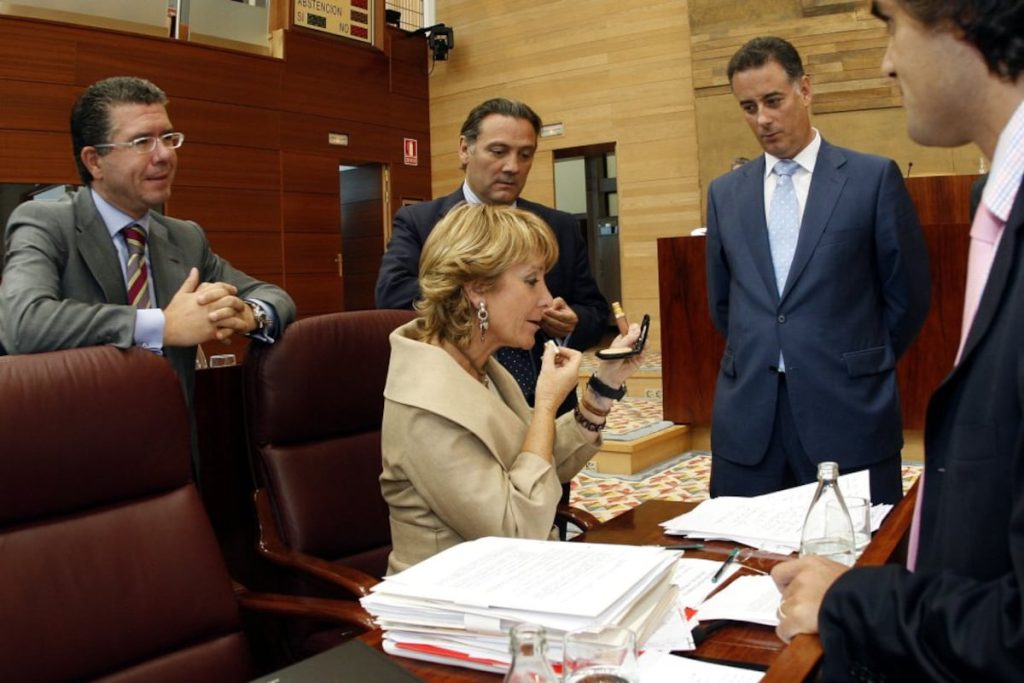Alfredo Prada, former deputy vice president of the first government of Esperanza Aguirre (2003-2007), was tasked with overseeing the construction of the Ciudad de la Justicia in Madrid, a project initiated by Aguirre to centralize all judicial bodies in one location. The project, which aimed to house various judicial entities in one modern complex, was meant to be a shining example of progress and efficiency. However, Prada’s management of the project led to corrupt practices, including the awarding of contracts to Norman Foster and other renowned architects, resulting in the misuse of funds totaling 40 million euros. The project, now abandoned and incomplete, has cost over 200 million euros, a significant waste of resources for the Community of Madrid.
The recent conviction of Alfredo Prada for corruption in the construction of the Ciudad de la Justicia brings to light the extent of corruption within the government of Esperanza Aguirre. Several members of the government, with the exception of Aguirre, have been sentenced to significant prison terms for their involvement in corrupt practices. Ignacio González, former deputy vice president, served nine months in pretrial detention and faces multiple high-profile corruption cases related to various projects initiated during Aguirre’s administration. Prada, too, was expelled from the government by Aguirre after supporting Mariano Rajoy in a leadership dispute within the party, highlighting the internal conflicts and power struggles within the administration.
The network of corruption, exemplified by the Gürtel case, infiltrated the Community of Madrid during Aguirre’s tenure, resulting in numerous irregularities and abuses of power. Many contracts were awarded to companies affiliated with the PP in exchange for kickbacks, with large sums squandered on extravagant events and displays of political power. Several high-ranking officials within the government, including Alberto López Viejo and Guillermo Ortega, were found guilty of corruption and faced lengthy prison sentences for their involvement in the scandal.
Despite the extensive corruption within her administration, Esperanza Aguirre managed to evade direct involvement in criminal activities, as the courts did not find evidence directly linking her to the corrupt practices of her associates. However, the perception of widespread corruption within her government tarnished her reputation, leading to her resignation from the presidency of the Community of Madrid in 2014. The ongoing legal proceedings and convictions of key members of her government have further eroded public trust in the PP and the leadership of Aguirre.
The fallout from the corruption scandals within the government of Esperanza Aguirre extends beyond the legal ramifications for the individuals involved. The political implications of these scandals have reverberated throughout the Community of Madrid and the wider political landscape, casting a shadow over the legacy of Aguirre’s administration. The cases of corruption and malfeasance have raised questions about accountability, transparency, and ethical conduct within the Spanish political system, highlighting the need for greater oversight and regulatory measures to prevent future abuses of power.
In conclusion, the corruption scandals that plagued the government of Esperanza Aguirre have left a lasting impact on the political landscape of Madrid and Spain as a whole. The conviction of key officials for corruption and the mismanagement of public funds underscore the need for systemic reforms and a commitment to upholding ethical standards in government. The legacy of Aguirre’s administration is marred by the stain of corruption, serving as a cautionary tale of the dangers of unchecked power and the importance of accountability in public office.


